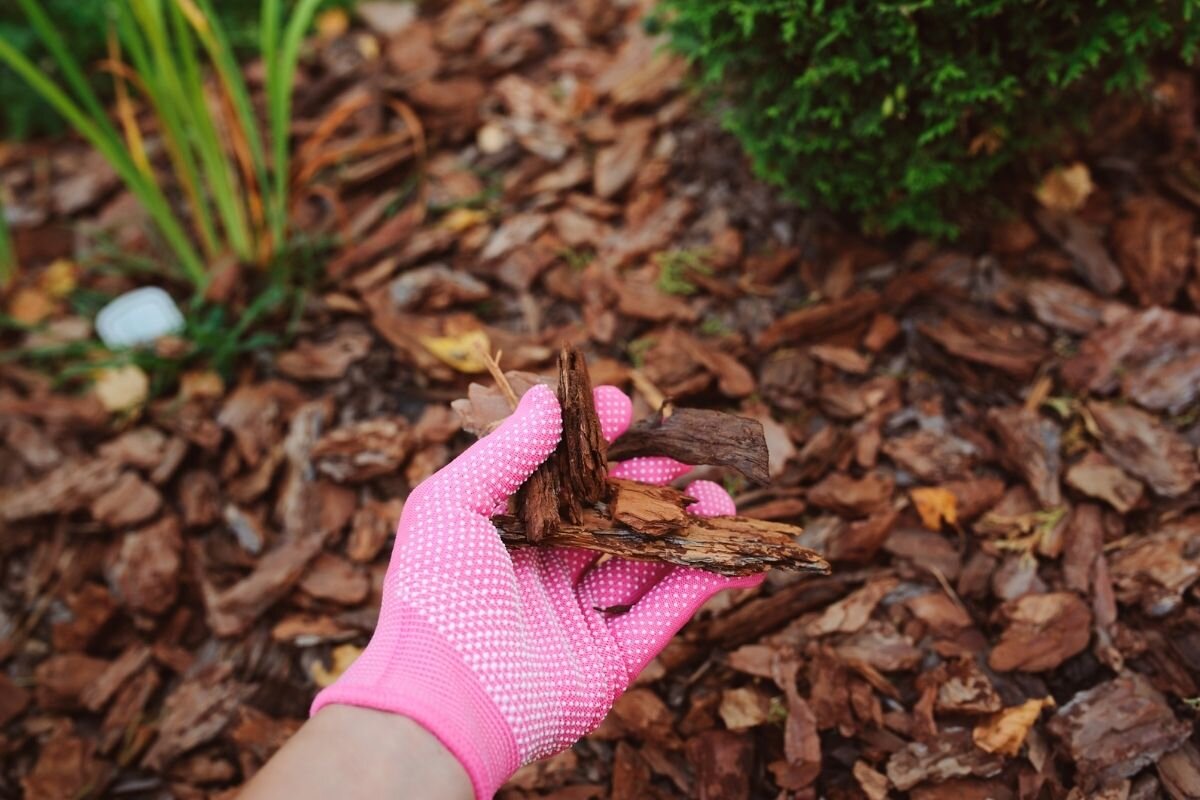Mulch: Bark, Wood Chips, or Rock? The Best Landscaping Materials for Your Property
If you’ve started ticking off renovation projects around your yard, you may find yourself eventually hitting your gardens. If they aren’t in the best shape, it’s only natural to begin looking at different landscaping materials to establish which one is going to offer the most attractive finish.
Although, aside from the aesthetics, there can be much more to consider. If you’re tossing up between bark, stones, wood chips, or something else, here is what you need to know.
Bark Mulch
There’s something quite charming about bark mulch in a garden, with beautiful plants gently nestled in between. Although, before you decide that this is the right landscaping product for you, it’s worth being aware of bark mulch pros and cons.
Many people love bark because it aids in moisture retention. If you’re trying to make sure your plants can thrive, bark can undoubtedly help. It’s also available in various types to suit the look of your property while also helping with drainage and weed reduction.
In saying that, there are a few disadvantages of bark mulch. Birds love it. They will happily carry away small pieces of bark until you have to top up your garden beds. Light bark can also blow away in the wind, and it can eventually break down.
In saying that, if you went for a combination of stone and mulch landscaping materials, you might be able to cut down how many of the disadvantages you experience for yourself.
Wood chips as mulch in a garden
Wood Chips
Many people ask the question, “are pine wood chips good for mulch?” and the answer is yes, they are. Pine mulch chips, and even pine needles and shredded pine can benefit your plants’ health and performance. They help with erosion, weed control, soil moisture, and the general aesthetics of your garden.
Although, if you’re wondering is it OK to put mulch next to your house, then we recommend that you don’t. In normal landscape conditions and especially during hot, dry summers, pinewood chips can be combustible.
If your heart is set on using wood chips, you can set it up within five to 30 feet of structures or in small areas separated by non-combustible materials. Look up rock and mulch landscape pictures, and you may find something that will suit the look of your property.
Rock as mulch for your garden
Stones and Rocks
If you have a drip irrigation system installed in your garden, or your plants don’t require a lot of water, you may consider stone mulch for your property. Stones are attractive and, with the help of a weed mat, can assist in keeping those pesky weeds at bay.
Even if you’re not used to seeing stones in your garden, flower beds with rocks instead of mulch can look quite attractive. You can also get creative with your plants, opting for succulents rather than common annuals and perennials.
If you are still on the fence about whether you’ll opt for bark or stones for your garden, know that they both have pros and cons. Stones may not help with moisture retention as much, but they don’t blow away in the wind or pose a fire hazard.
What Are My Other Options?
After reading through landscaping pros and cons of rocks vs. mulch, you may decide that neither option appeals. Fortunately, you can also make your own mulch. Not only is it more affordable than rocks and bark, but it can offer much-needed nutrients that your soil may be lacking.
Can you identify these mulch options?
Some of the best ingredients for mulch, many of which you’ll have around the home, include:
Compost
Sawdust
Newspaper
Lawn clippings
Pea straw
Note: Organic materials break down. You may need to create new mulch for each growing season.
How to Calculate How Much Landscaping Materials You Need
Working out how much bark or stones you require for your gardens can be hard work. You could hazard a guess, but there’s always a risk that you’ll purchase too much or not enough.
Fortunately, there are plenty of online calculators that can help. All you need to do is type “how do you calculate landscaping material?” into Google or another search engine.
With most online calculation tools, you simply need to find out the length of the area you require bark or stones for, its width, and the depth. These figures will help you establish the area, perimeter, and volume.
It’s Time to Start Landscaping
There is no single winner when it comes to the best landscaping materials in NZ. Bark is, of course, an aesthetically pleasing option, but so are rocks. Even pine wood chips have their place, as long as homeowners take care to use them wisely.
Remember, you can also ask a landscaping and lawn care expert for their opinion. They will be only too happy to share their advice. Happy landscaping, everyone!




